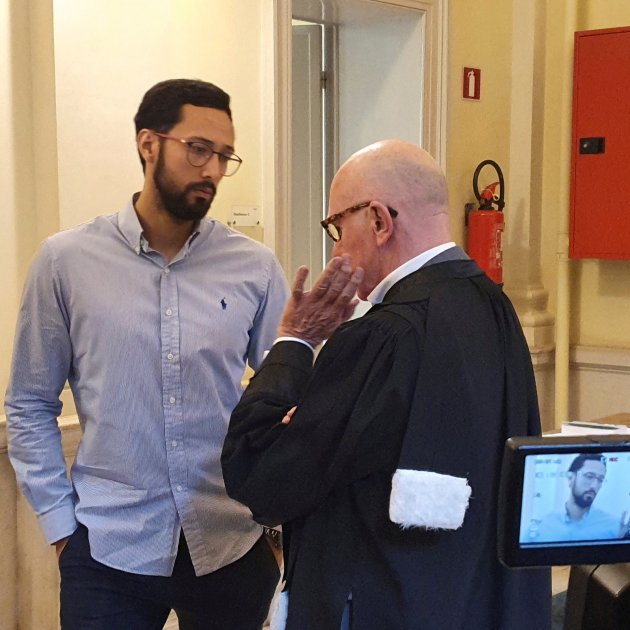The decision of the Belgian Constitutional Court to overturn the country's lèse-majesté law on insults against the monarchy, arising from the Spanish request for the extradition of the rapper Valtònyc, has made a strong impact in the Belgian media.
'Le Soir' newspaper
The leading Belgian newspaper, which publishes in French, has headlined that "The crime of lèse-majesté violates freedom of expression, according to the Constitutional Court." "The case which has to be decided by the Ghent Court does not directly affect Belgium but rather Spain and an exiled rapper in the Ghent region. Josep Miquel Arenas Beltran, nicknamed Valtònyc, was convicted of insulting the Spanish crown as well as glorifying terrorism in 2017,” Le Soir notes. "A crime committed in the field of political discourse is only admissible in exceptional circumstances, said the Belgian Constitutional Court. Likewise, the aims of guaranteeing the inviolability of the king and the stability of the constitutional system cannot justify the king's reputation being more protected than that of other people", reports the daily.
"The crime of lèse-majesté violates freedom of expression, according to the Constitutional Court." headlines Le Soir
Public broadcaster RTBF
Belgium's French-language public TV broadcaster reports that, according to the country's Constitutional Court, the law penalizing offences against the king is unconstitutional, and that this conclusion has been reached due to the Spanish extradition request against rapper Valtònyc. It explains that the Ghent Court, which is deliberating on the Spanish extradition request, prompted the ruling by presenting a preliminary question to the Belgian Constitutional Court.
"According to the Constitutional Court, the crime of lèse-majesté is unconstitutional", headlines Belgian public TV
'La Libre Belgique' newspaper
The newspaper asks: "Do we have the right to offend the person of the king? The answer is yes. The Constitutional Court has just decided that we can," it said. And it recalls that the Belgian law now considered unconstitutional, dating from 1847, established in its first article “on the repression of crimes against the king”, that a person “who […] commits a crime against the person of the king, will be punished with a prison sentence of six months to three years, and a fine of 300 to 3,000 Belgian francs."
"The crime of lèse-majesté violates freedom of expression, according to the Constitutional Court", headlines La Libre Belgique
Flemish-language daily 'De Standaard'
The Flemish-language newspaper states that the Belgian Constitutional Court has “swept away” the law of lèse-majesté. "The ruling came after Belgium refused to extradite Valtònyc," it added. "As a result of this sentence, the judges of our country will no longer invoke this century-old law. However, the law cannot yet be removed from the penal code [automatically]. The Flemish party N-VA was already working on a project to eliminate the law. Responding to this newspaper, N-VA parliamentarian Peter Buysrogge says they want their proposal to be processed more quickly after the ruling," added De Standaard.
"Prohibiting insults to royalty is contrary to the freedom of expression, according to the Constitutional Court" headlines De Standaard
'De Morgen' daily
The newspaper De Morgen, also published in Flemish, explains that "a Catalan rapper has questioned our country's 1847 law forbidding insults to the king. It is not that it was aimed at king Philippe of Belgium, his wife or their children, but rather that in his song lyrics he insulted the Spanish king". "As the Spanish authorities take these things very seriously, the rapper fled to our country in 2018. Since then, the Belgian court has expressed doubts about his extradition. Belgium can only return him to Spain if he has committed crimes that are also punishable in our country. However, the European Court of Human Rights (ECHR) has already made it clear in several judgments that the principle of lèse-majesté should be reviewed. Thus, a court presented a preliminary question to the Constitutional Court, which has today ruled on the matter,” it explains.
"The ban on insulting the king is contrary to freedom of speech: and now what?" headlines De Morgen
